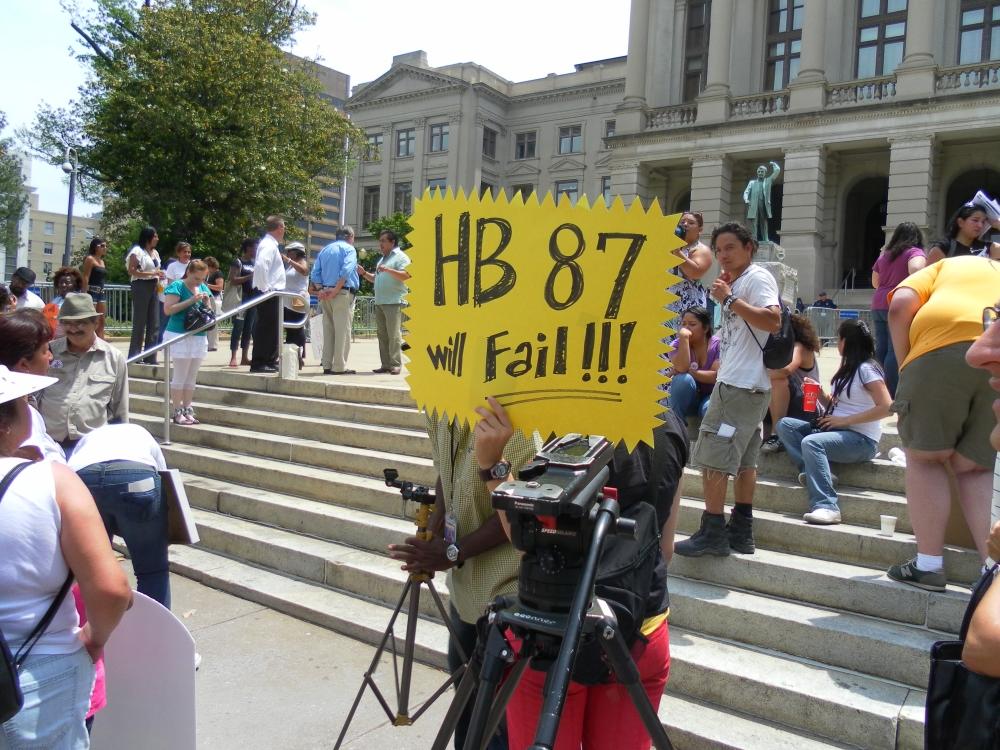
Section Branding
Header Content
Cities Failing On Immigration Rule
Primary Content

The state auditor has warned 1,000 communities they may be violating a 2011 law cracking down on illegal immigration. Municipalities must prove contractors doing public work don’t have illegal employees.
The state immigration law, known as HB 87, requires cities and counties to submit affidavits that contractors building new offices or repairing bridges, for example, use E-Verify.
That’s a federal database that vets workers’ immigration status.
By the end of July, Georgia’s 2,300 cities, counties and authorities must be in compliance or risk losing state grants.
State auditor Russell Hinton says this is the first year of compliance so it's not unusual that there are some hiccups.
“The state is working through, trying to get compliance with the provisions of House Bill 87," he said in an interview. "It’s new reporting requirements for all of the cities and counties, and certainly there is some confusion involved with it. But hopefully when we get through this first cycle, we may see some marked improvement.”
Municipalities that employ less than two people are exempt from the rule. But they still must inform the state in writing they are exempt. Hinton said the state's "dilemma" is that officials don't which groups have to comply, and which don't so they need all of them to respond.
Local officials say their small staffs need time to learn about new state requirements. For example, an official in Calhoun County who didn't want to give her name said the employee who had been overseeing E-Verify compliance died and a new person now was trying to catch up on the new requirements.
There are growing pains for the state as well. Since informing potential offenders, the state has said that some local governments are in fact in compliance.
Athens-Clarke County, for example, made the list but state and local officials now say the consolidated government is enforcing the rule.
Todd Edwards, with the Association County Commissioners of Georgia, says it’s a learning process for all parties.
"There have been three directives coming down from the attorney general’s office on what actually constitutes a physical performance of services, which are the services that actually go into these reports," he said. "So there’s confusion at the state level. There’s confusion at the local level. Local governments are doing their best to comply. It just takes a little time.”
Edwards said county officials want to comply with all state laws, but each year the General Assembly passes new mandates. Enforcing those new rules typically falls to local officials. That requires extra labor and in some cases more revenue -- both of which are in short supply for many small local governments.
There will be additional mandates connected with HB 87 to come.
By the end of this year, municipalities will have to vouch that anyone applying for a business license or other document required to operate a business is using E-Verify.
Tags: immigration law, E-verify, HB 87, immigration crackdown
